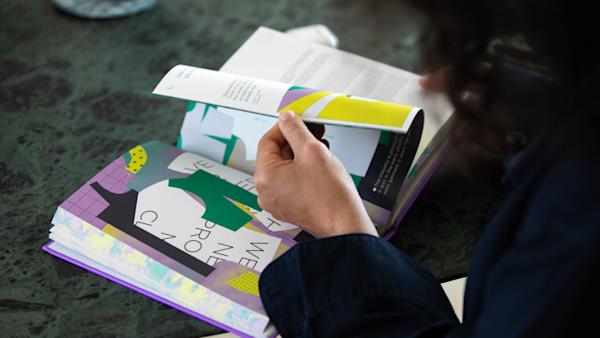INNOVATORS CREATE JEANS WITH THE RIGHT FIT
Project shows how circular design can become the norm
July 19, 2023, London – Leading brands, manufacturers, and mills have shown it’s possible to redesign a company’s entire jeans portfolio so they are fit for a circular economycircular economyA systems solution framework that tackles global challenges like climate change, biodiversity loss, waste, and pollution. It is based on three principles, driven by design: eliminate waste and pollution, circulate products and materials (at their highest value), and regenerate nature. – and in doing so, have demonstrated how the industry can bring circular design to everything in our wardrobes.
The Jeans Redesign – launched by the Ellen MacArthur Foundation in 2019 – gave the industry a minimum bar to design and make garments in line with circular economy principles. Guidelines covered criteria such as durabilitydurabilityThe ability of a product, component or material to remain functional and relevant when used as intended., traceability, recyclabilityrecyclabilityThe ease with which a material can be recycled in practice and at scale., and safe materials and processes.
Participants committed to reimagine this iconic fashion staple – jeans – and work with peers and partners across the value chain.
The latest insights report reveals:
70% of participants overcame design and innovation challenges to meet the project’s guidelines.
Between 2021 and 2023, 1.5 million pairs of jeans were redesigned by brands to meet the guidelines - three times as many as in 2021. One-in-nine brands have redesigned at least 40% of their jeans portfolio.
More than a third of participants have applied the principles of circular design beyond jeans to other garments, including jackets, shirts, bags, and hats.
More than two thirds of participants now have business models, or offer services, designed to keep jeans in use. Examples include rental, resale, and repairrepairOperation by which a faulty or broken product or component is returned back to a usable state to fulfil its intended use. services.
One hundred participants from more than 25 countries have taken part in the project. Their learnings show how circular design can be embraced by companies to ensure garments are used more, are made to be made again, and are made from safe recycled or renewable inputs.
The report also revealed where obstacles exist, and how businesses and policy makers can foster the right conditions to accelerate change.
Businesses reported challenges such as having to pay a premium to source the right materials. They also found it difficult to develop jeans with stretch that meet the guidelines. In addition, for some criteria - such as the removal of rivets - technical solutions were found, but design choices meant they continued to be used.
For policy makers, the project’s findings emphasise the need to introduce policies, for example a minimum bar for all products, that creates a level playing field. It is also critical that policies ensure we pay the true cost of our clothes – a cost that includes those related to climate change, pollution, and loss of biodiversity.
Thanks to The Jeans Redesign, we are finding the solutions and pathways to redesign garments at scale.
But to fully realise the potential, we need to take the next step and redesign the system itself, including services, business models, and supply chains that sit across the industry to keep products in use.
“Jeans were always intended to be the start of this journey. By redesigning products so they are fit for a circular economy, we are making progress. But to truly challenge conventional linear models at scale we must go beyond redesigning products. We need to redesign the services, supply chains, and business models that deliver garments and keep them in use. The path forward is clear. It’s time to step up the pace and scale of progress.” - Jules Lennon, Fashion Lead, Ellen MacArthur Foundation
“Bringing our redesigned jeans to market required significant cross-functional collaboration internally at Reformation and externally with our suppliers. For example, designing for circularity training and engagement with product development teams was vital. Clear and consistent communication and process development for sourcing, fiber, and trim approval were also required. Supplier partnerships and collaboration were key to driving innovation. Overall, we need to shift from a competitive view to a shared mission. The Jeans Redesign has helped us do just that – fostering a community and pushing innovation forward in a more collaborative and holistic way.” - Carrie Freiman, Senior Director of Sustainability, Reformation
"We love jeans and they have been at our core since the beginning. Weekday believes in a circular fashion future. So creating jeans that are prepared for a circular life is a natural and important step in our brand's circular journey. From the experience of making the first capsule, the team has learned that it is scalable. That's exactly the way we need to work to move towards a more circular fashion industry.“ - Kim Holm, Managing Director, Weekday
“It’s firstly a mindset, actions start at the design level. Understanding the “why” behind the design guidelines empowers designers to become more creative. Everything is less difficult once the customer and we, as a garment manufacturer, align on what we aim to achieve.” - Peter Lantz, Head of Sustainability, Cross Textiles
ENDS -
ABOUT THE ELLEN MACARTHUR FOUNDATION
The Ellen MacArthur Foundation is an international charity developing and promoting the circular economy in order to tackle some of the biggest challenges of our time, such as climate change, biodiversity loss, waste, and pollution. We work with our Network of private and public sector decision-makers, as well as academia, to build capacity, explore collaborative opportunities, and design and develop circular economy initiatives and solutions.
Increasingly based on renewable energyrenewable energyEnergy derived from resources that are not depleted on timescales relevant to the economy, i.e. not geological timescales., a circular economy is driven by design to eliminate waste, circulate products and materials, and regenerate nature, to create resilience and prosperity for business, the environment, and people.
Further information: www.ellenmacarthurfoundation.org | @circulareconomy
ABOUT THE FOUNDATION’S FASHION INITIATIVE
The Fashion Initiative was launched by the Ellen MacArthur Foundation as ‘Make Fashion Circular’ at the Copenhagen Fashion Summit 2017, and brings together leaders from across the fashion industry to work with cities, philanthropists, NGOs, and innovators. Fashion companies that are in the Foundation's Network include: Strategic Partners - Gucci and H&M Group, Partners - Inditex, Lacoste, Primark, PVH Corp., Ralph Lauren, Tapestry and Zalando, and members. The Foundation’s Fashion Initiative is leading international efforts to stop waste and pollution by creating a circular economy for the industry, where products are used more, are made to be made again and are made from safe, recycled or renewable inputs.





